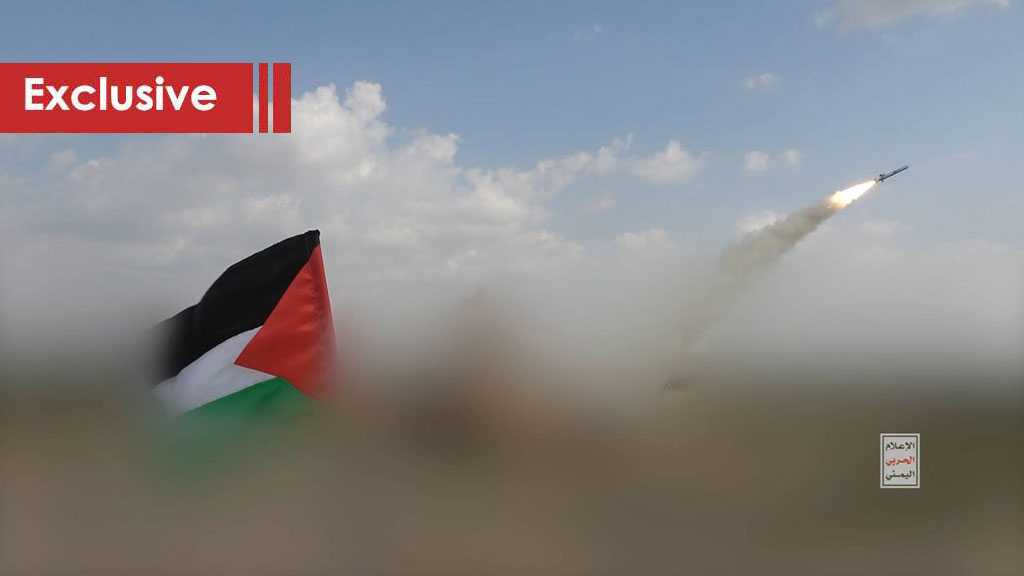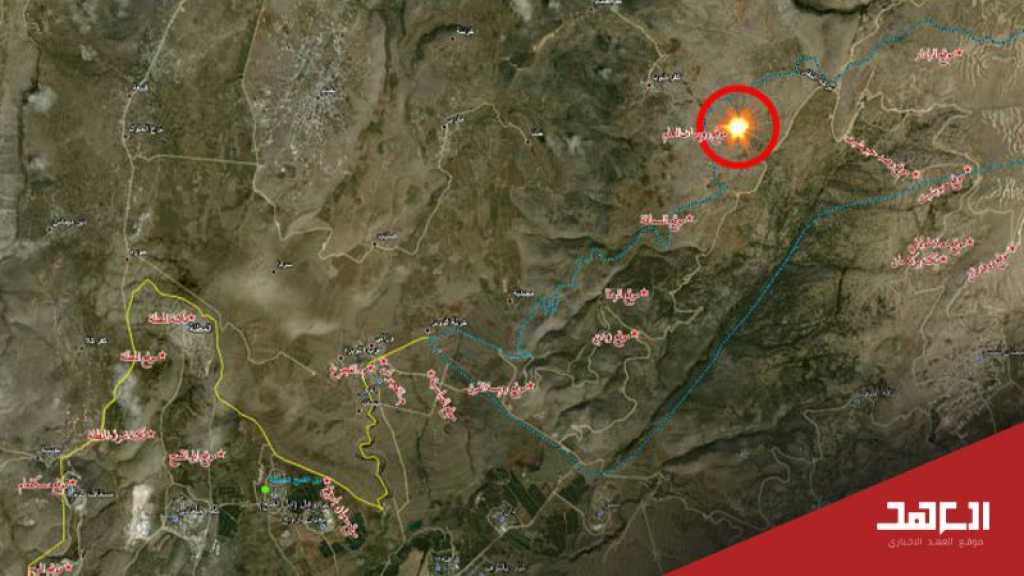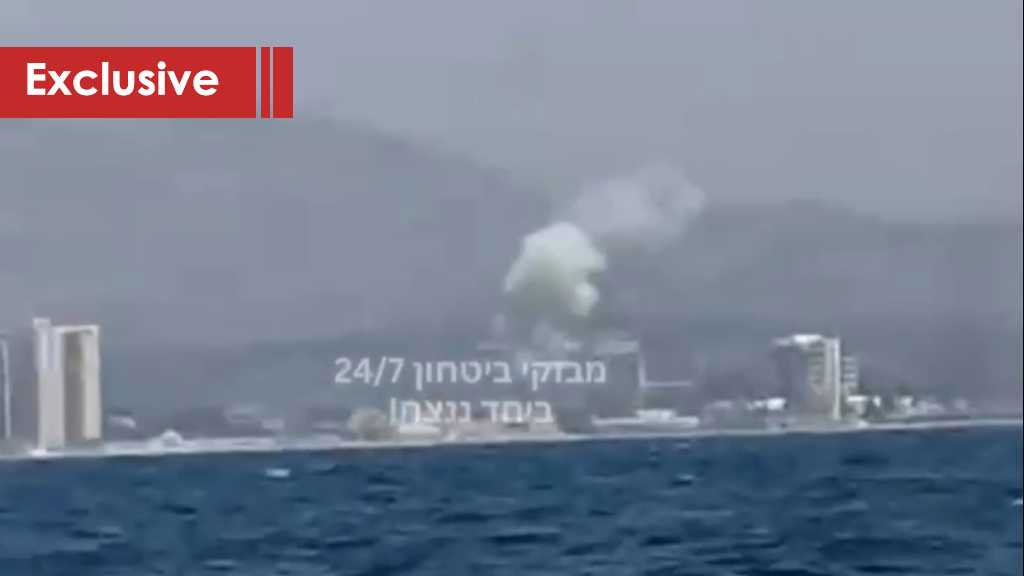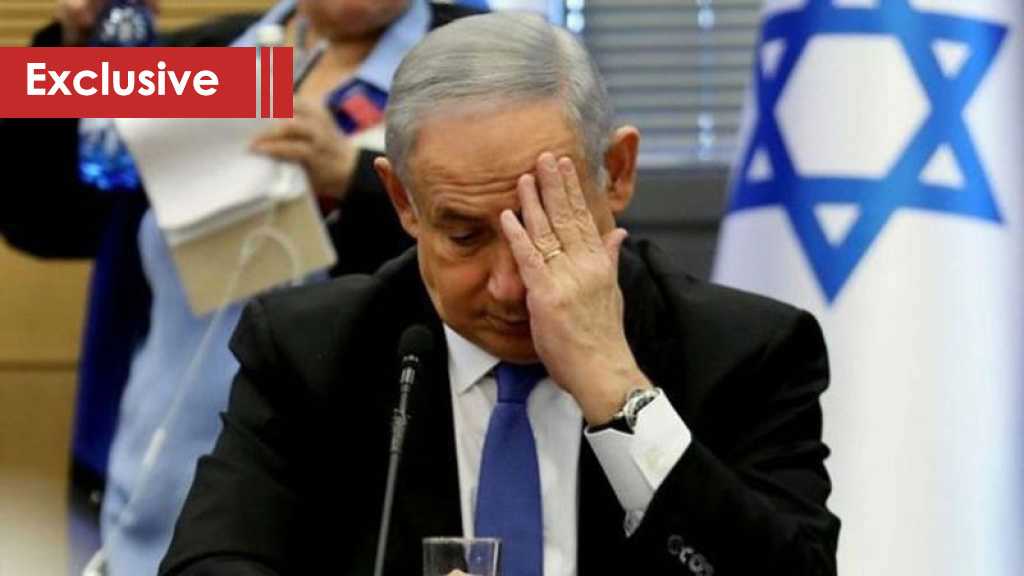
Hezbollah’s Foreign Affairs Chief to Al-Ahed: There is No Diplomatic Rupture with Us
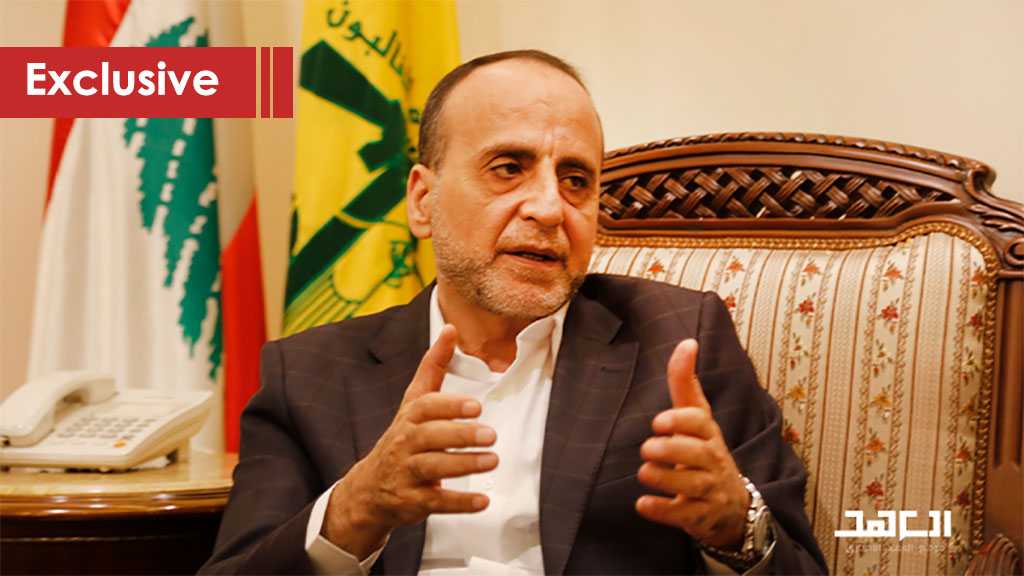
By Latifa al-Husseini
Al-Moussawi takes Al-Ahed behind the scenes of a planned dinner at the Swiss Embassy
Starting from 1982, Hezbollah has enjoyed 40 years of success, development, and achievements. The military strenght of the resistance and its political performance inside Lebanon showcased a model that regional and international powers cannot ignore.
Today, representatives of different countries converge on Dahiyeh. They seek good relations with Hezbollah and don’t want them severed.
Maintaining close contact with the group seems to be an enduring policy on the part of ambassadors. This is highlighted by the gradual diplomatic movement towards the party.
In an interview with Al-Ahed News, Hezbollah’s head of foreign affairs, Sayyed Ammar Al-Moussawi, details the activities of representatives from different countries with respect to the resistance.
According to Al-Moussawi, there is no diplomatic rupture between other states and Hezbollah. Public and private communications are ongoing in all areas without exception.
Al-Moussawi explains that there is a solid understanding that meetings with the French are in the interest of the country, and hence the frequent visits of Ambassador Anne Grillo to Hezbollah.
He takes Al-Ahed behind-the-scenes of a planned dinner at the Swiss embassy, covering the entire affair, and even talking about how Saudi Arabia fired at him.
On the occasion of the signing of the maritime border delimitation document, Al-Moussawi reveals that many parties have recently been reaching out to Hezbollah, which underscores international concern over the prospects of an escalation into a military confrontation.
Touching on the Arab world, Al-Moussawi said the Saudi position does not extend to other Gulf states, as the Gulf position towards Lebanon is not accurately expressed by Riyadh.
This assessment is based on information the party received from more than one side. Therefore, it is a duty to welcome Lebanon’s brothers and friends, especially countries that act objectively and avoid maliciousness, dictates, and threats.
Below is the full transcript of the interview:
- Is there cause for optimism over the broader regional situation, or is the situation deteriorating, especially amid the ongoing Russian operation in Ukraine?
We can say that the severity of the crises at the regional level is receding. The focus is on the battle in Ukraine. The US and the West decided to prioritize the confrontation with Russia.
Therefore, there is a glimpse of an effort to freeze other crises, especially in the region. An observer can say that the scene in the region is not getting more complications, but rather crises are experiencing a decline in their severity.
- Do you think the successive events in Palestine – the commando operations and the internal “Israeli” conflict – indicate a progression of the resistance and its axis, the factions, and allies against the “Israelis”? How do you view the post-Knesset elections, and the prospects of Likud returning to the forefront?
The Palestinian cause remains the central cause and is experiencing an escalation. This is linked to the enemy’s development of methods of aggression and revenge on the one hand and the decision of the Palestinian resistance factions, as well as sectors of the Palestinian people, to respond to the threats through defiance and steadfastness on the other. This is what the West Bank is witnessing.
Regardless of who wins the “Israeli” elections, I do not think that there will be a change in how “Israel” deals with the Palestinian file, whether in the West Bank or the Gaza Strip.
Regardless of whether the next government in the entity is right or center, the “Israeli” position is the same at the level of rejecting Palestinian rights – starting with the issue of rejecting the two-state solution. This is separate from our view that all of Palestine should be returned to the Palestinian people.
Even the basic components in the Oslo Agreement or those advocated by the International Quartet are not on the agenda of the two competing political parties in the “Israeli” elections.
Addressing this file will be done in a security and military manner. Therefore, whether the elections result in the return of Likud to power or any other scenario, it will not change anything in how the enemy’s leaders behave.
The Americans will not exert pressure or seek solutions to the files related to the Palestinian cause.
- Turning to the files that are directly related to your mandate. How do you explain the continuous communication between Hezbollah and the Europeans despite the sanctions and its inclusion on the terror list?
The sanctions imposed by the European Union against Hezbollah, according to them, only affected the military wing, and they informed us of this at the time and that this issue will not affect political communication.
As for us, we told them that Hezbollah is one body and there is no distinction between a military wing and a political one. Communication still exists despite this classification, given that Hezbollah is a major component and player not only at the local level. Therefore, whoever boycotts Hezbollah is making a decision to shun part of the local and regional scene.
- Do you deal with representatives of Arab and other countries on a daily basis? How would you describe it?
Communication exists in all areas and files without exception. It's not 100% normal, but there is no rupture or boycott.
Most of the representatives of these countries try not to publicize the meetings because they don’t want to be put on the spot.
We are aware that many of these countries are subject to American and “Israeli” pressure to cut off any form of communication with Hezbollah.
On the other hand, the French say publicly that they maintain constant contact with Hezbollah to cooperate on Lebanese issues, and that they care about Lebanon's interest.
- Which of the European countries does not see anything wrong with declaring their communication with Hezbollah?
There is a good number of countries that do not see a problem with that, and there are some countries that prefer private communications, even on a political or diplomatic level.
Some countries suggest other types of communications that have a security dimension in an attempt to say that they do not talk to Hezbollah, but we reject this and insist that the communication be on a political or diplomatic level.
- If we stop at the most prominent recent developments at the diplomatic level in Lebanon, were you invited to the dinner at the Swiss embassy in Beirut? In what framework can it be placed? Why was it made to fail?
We were in the picture. We were asked to have a party representative and MP Ali Fayyad was chosen to attend the dinner that was scheduled.
This is not the first Swiss attempt. The Swiss government has previously directly sponsored or supported dialogue, whether in Beirut or Geneva. The dialogue was hosted by one of the civil society institutions there (the Center for Humanitarian Dialogue), but under the auspices of the Swiss Ministry of Foreign Affairs.
They contacted us and we didn't mind. We consider all opportunities for dialogue important and necessary, so we accepted.
Why was the dialogue made to fail? According to what we were told by the Swiss, in the process of preparing for this dialogue, they put everyone in the picture, including the Americans, the French, and the Saudis. They received encouragement from all parties, and that this dialogue is not a substitute for other courses or understandings.
However, according to what they told us, they were surprised by the process of thwarting this step and shooting at it, specifically by the Saudis.
- Is dinner canceled or postponed?
We do not have a final data, but Swiss officials have expressed their adherence to this step and that they will create a conducive atmosphere in the next stage.
- Regarding the movement of ambassadors, everyone noticed the activity of the Saudi ambassador today, which began with the start of the presidential election. How do you read this in comparison to the activities of the other ambassadors in Beirut?
Electing a president or other constitutional challenges must be conducted nationally by opening the doors of dialogue and understanding among the Lebanese.
There should be no form of foreign interference by some countries or their representatives, and if there is interference, it must be positive to urge the Lebanese to engage in dialogue and understanding.
There are negative roles, including the Saudi role, whose interference complicates and does not facilitate the presidential electoral process.
Throughout the last four electoral cycles, it became clear that some of the complexity is fueled by forces that are influenced by external messages that prevent them from progressing.
Neither side has the ability to impose its point of view. There are no majorities in Parliament, as we said earlier. The Lebanese need dialogue and to sit down together to devise solutions among themselves.
- What about the international rundown on electing a president that we are used to in Lebanon with all other entitlements?
So far, this rundown oscillates between passivity and lack of depth. It is still an informal rundown, not a serious one.
- The French Ambassador, Anne Grillo, recently visited the head of the Loyalty to the Resistance bloc, MP Muhammad Raad. What was the atmosphere like during this visit? What was its purpose? Are we facing a new stage in the relationship with the French, or is it a continuation of a previous course?
Communication is ongoing; two weeks before this visit, I met the French ambassador, and this dialogue complements that.
There is a kind of understanding to continue the dialogue for the benefit of the country. We always deal positively with all steps. But so far, there is no specific initiative.
The French are urging us to take advantage of the remaining time of President Michel Aoun's term in an attempt to advance on the path of electing a president and avoiding a vacuum, and this is what we desire.
We are also in agreement with the French on the need for a full-fledged government in the event of a vacuum.
The French also moved on the mediation line with regard to the issue of demarcation of the maritime borders, and they expressed their support for reaching an understanding that preserves Lebanon's rights.
- How can the movement of diplomats towards the party be described, especially recently with regard to the border negotiations? Have you received messages from countries regarding this issue and the confrontation with "Israel"?
There are many parties who were worried that things would escalate into a confrontation and that what they considered a "historic opportunity" would be lost.
In any case, we insist on saying what created this "opportunity" is the world and the West's need for an alternative to Russian energy supplies, in addition to the decisive messages launched by the resistance under the notion: If Lebanon has no right to restore and extract its wealth, we will not allow others to happily extract their so-called wealth, and what we consider usurped Palestinian rights.
This is what created the "opportunity" for Lebanon, especially after 10 years have passed without any prospect of obtaining its rights, regardless of the decision of the Lebanese state and its officials to specify Lebanon's rights.
The resistance said it does not interfere with the issue of to the borders. This is up to the state. We stand behind the state in supporting Lebanon's position and preventing "Israel" and the Americans from undermining it.
- What is being said about communication with the Qataris, especially since Qatar has expressed its desire to participate in oil exploration operations in Lebanese waters and has launched a project and an employment platform for Lebanese in Qatar in cooperation with the Lebanese Ministry of Labor?
Every party can play a positive role in the interest of Lebanon, especially brothers and friends. We welcome them.
After the withdrawal of Russia’s Novatek, which was part of the international exploration consortium, there is talk of the Qatari company replacing it.
We do not have any objections to that, but the ceiling of all these matters is taking into account Lebanon's interests and that the Lebanese treasury does not lose the expected revenues.
We welcome Lebanon's brothers and friends, especially countries that act objectively and avoid maliciousness, dictates, and threats.
The Gulf position on Lebanon is not accurately expressed by Saudi Arabia. Many Gulf countries show solidarity with Saudi Arabia in their stance on Lebanon, but behind the scenes, they say that their real stance is not as it appears in public.
- Were you informed of this?
From more than one side.
- How would you describe Hezbollah's relationship with Arab countries, including the Gulf states today?
Saudi Arabia, through its pressure on other countries, is trying to show a biased Arab or Gulf position towards the Lebanese and other files, but things are not like this.
Lebanon has an opportunity to deal with the Gulf states on the basis of bilateral interests, and Gulf states mustn’t be blindly led by Saudi desires.
- How is the relationship with Russia and China going?
The relationship is old, close, and good, and we communicate and consult on a regular basis and exchange views on all international and regional issues.
We believe in the need for Lebanon to diversify its options in terms of its relations, and this is its right.
The call to head East, launched by His Eminence the Secretary General of Hezbollah, Sayyed Hassan Nasrallah, came in this context. Of course, this will not be at the expense of Lebanon's traditional relations, but it is with the aim of diversifying options and allowing Lebanon to explore available opportunities, especially at this stage in which it faces very great difficulties.
Today, we are witnessing a major change in the international balance of power. There are economies that are thriving and were not like this 20 years ago.
This becomes clear when we talk about groups such as the Shanghai Cooperation Organization as a large economic grouping, China as the second largest economy in the world, and countries with huge reserves of wealth.
This tells the Lebanese that the interest of their country lies in diversifying cooperation in economic fields.
This is part of the responsibility of some Lebanese officials whose positions and performance are not in line with the true interests of Lebanon, which requires that it cooperate with everyone – east, west, north, and south, of course, with the exception of the Zionist enemy.
We have an opportunity today that must be seized, especially in light of the presence of attractive and easy offers for Lebanon. This does not imply closing the doors of traditional cooperation.
There is a constant complaint that Lebanon, through its relations with either Arab or European countries, has not been able to obtain the right of reciprocity, especially at the level of the economy.
Lebanon has always been in the position of the weakest party in economic agreements with these countries. We do not benefit from the principle of reciprocity.
Lebanon imports most of its needs from abroad, and when it wants to export its products, it encounters an obstacle of specifications, for example, and this is a front for the so-called protectionism policy (protecting the national product).
By the way, is it conceivable that Lebanon, the country of apples, imports apples from abroad?
